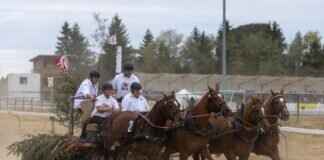This article delves into the significant factors fueling the economic growth of West Bengal in 2024. It highlights key sectors, government initiatives, and future prospects that are shaping the state’s economic landscape.
Overview of West Bengal’s Economic Landscape
West Bengal’s economy is characterized by a rich tapestry of industries that have evolved over the years. The state has witnessed a remarkable transformation, moving from traditional sectors to a more diversified economic base. This growth is driven by a combination of local resources, skilled labor, and strategic government policies aimed at fostering development.
Key Industries Driving Economic Growth
- Agriculture Sector Contributions: The agriculture sector continues to play a pivotal role, with West Bengal being a major producer of rice, jute, and fish. This not only supports local livelihoods but also feeds into national supply chains.
- Manufacturing and Industrial Growth: The state has become a manufacturing hub, especially in textiles and engineering goods, attracting significant investments that bolster job creation.
- Technological Advancements: The IT sector is thriving, with Kolkata emerging as a hotspot for tech startups, driven by a young, dynamic workforce and a supportive ecosystem.
Government Policies and Economic Reforms
The West Bengal government has implemented a series of reforms aimed at improving the business environment. Initiatives to enhance the ease of doing business have been pivotal in attracting new investments. Infrastructure development, particularly in transportation and energy, has further supported economic activities.
Future Prospects and Challenges
While the outlook for West Bengal’s economy is promising, challenges remain. Addressing skill gaps in the workforce is crucial to ensure that the state can compete globally. Additionally, balancing industrial growth with environmental sustainability will be essential for long-term prosperity.
Conclusion: In summary, West Bengal’s economic growth in 2024 is underpinned by a combination of strong agricultural foundations, industrial advancements, and supportive government policies. By addressing existing challenges, the state can pave the way for a sustainable and prosperous future.

Overview of West Bengal’s Economic Landscape
An in-depth examination of West Bengal’s economic landscape reveals a vibrant tapestry of industries and sectors that have significantly influenced the state’s growth trajectory in recent years. This diverse economic environment is characterized by a blend of traditional and modern industries, reflecting the state’s rich heritage while embracing innovation and technology.
West Bengal has emerged as a crucial player in India’s economic framework, contributing substantially to the national GDP. The state’s economy is supported by a mix of agriculture, manufacturing, and services, each playing a pivotal role in fostering growth and stability.
- Agriculture: The backbone of West Bengal’s economy, agriculture employs a large portion of the population and is known for its production of rice, jute, and various fruits and vegetables.
- Manufacturing: The manufacturing sector has seen a resurgence, particularly in textiles, leather goods, and engineering products, attracting both domestic and foreign investments.
- Information Technology: The IT sector has witnessed exponential growth, with Kolkata becoming a hub for tech startups and innovation, thanks to a skilled workforce and supportive infrastructure.
Additionally, the state government has implemented various initiatives aimed at enhancing the business environment, including the simplification of regulatory frameworks and investment in infrastructure. These efforts have not only attracted new businesses but have also encouraged existing ones to expand their operations.
Looking ahead, West Bengal’s economy is poised for further growth, though it must navigate challenges such as skill gaps in the workforce and environmental sustainability. By addressing these issues, West Bengal can continue to build on its economic foundation and achieve sustainable development.

Key Industries Driving Economic Growth
West Bengal’s economic growth is significantly influenced by several key industries that leverage the state’s unique competitive advantages and investment potential. This diverse industrial landscape encompasses agriculture, manufacturing, and IT services, each contributing to the region’s robust economic framework.
- Agriculture Sector: The backbone of West Bengal’s economy, agriculture plays a pivotal role in sustaining livelihoods and boosting local economies. Major products include rice, jute, and fishery outputs, making the state a vital contributor to both local and national markets.
- Manufacturing Sector: West Bengal has emerged as a manufacturing hub, especially in textiles, leather, and engineering goods. The state has attracted significant investments, which have facilitated the growth of industries, creating jobs and enhancing economic stability.
- IT Services: The IT sector in West Bengal has witnessed explosive growth, driven by a skilled workforce and rapid technological advancements. The capital city, Kolkata, has become a hotspot for IT companies, fostering innovation and entrepreneurship.
The interplay between these industries not only highlights West Bengal’s economic diversity but also showcases the state’s potential for future growth. Government initiatives aimed at promoting investment and improving infrastructure have further bolstered these sectors, paving the way for sustainable economic development.
In conclusion, the combination of a strong agricultural base, a growing manufacturing sector, and a vibrant IT industry positions West Bengal as a significant player in India’s economic landscape. As the state continues to evolve, it remains essential to harness these industries’ potential while addressing challenges such as workforce skill gaps and environmental sustainability.
Agriculture Sector Contributions
The agriculture sector is a vital component of West Bengal’s economy, playing a crucial role in shaping both local and national markets. This sector not only contributes significantly to the state’s GDP but also provides livelihood to millions of people. With its diverse agricultural production, West Bengal stands out as a major contributor to key crops and fisheries.
Rice remains the staple food of the region, with West Bengal being one of the largest producers in India. The favorable climatic conditions, along with the dedication of farmers, have resulted in high yields, ensuring food security for the state and beyond. Additionally, the cultivation of jute, often referred to as the “golden fiber,” has positioned West Bengal as a leader in jute production, contributing to both domestic and international markets.
Another significant aspect of the agriculture sector is fishery production. West Bengal is home to a vast network of rivers and water bodies, making it ideal for fish farming. The state is renowned for its diverse fish species, which not only cater to local consumption but also generate substantial export revenue.
Government initiatives have been instrumental in enhancing agricultural productivity. Programs aimed at providing subsidies for seeds and fertilizers, along with training for modern farming techniques, have empowered farmers to adopt sustainable practices. This support has led to increased crop yields and improved economic stability for many households.
In conclusion, the agriculture sector in West Bengal is not just about production; it encompasses a broader economic framework that influences various facets of life. As the state continues to innovate and adapt, its agricultural contributions will remain pivotal in driving economic growth and ensuring food security.
Innovations in Agricultural Practices
The agricultural landscape in West Bengal is undergoing a transformative phase, driven by innovative practices that enhance both productivity and sustainability. These advancements are critical not only for local farmers but also for the broader economic framework of the state.
One of the most significant innovations is the implementation of advanced irrigation techniques. Traditional methods are being replaced with modern systems such as drip and sprinkler irrigation, which optimize water usage. This is especially crucial in a state that experiences varied rainfall patterns. By ensuring that crops receive adequate moisture without wastage, farmers are witnessing improved yields and reduced costs.
In addition to irrigation, crop diversification is gaining traction among West Bengal’s farmers. By cultivating a variety of crops rather than relying solely on staple grains, farmers can mitigate risks associated with market fluctuations and climate change. This approach not only enhances food security but also increases farmers’ income by tapping into different market demands.
Moreover, the integration of agri-tech solutions—such as precision farming and data analytics—has revolutionized how farming is conducted in the region. These technologies allow for real-time monitoring of soil health, pest management, and crop growth, enabling farmers to make informed decisions that boost productivity.
Furthermore, initiatives aimed at educating farmers about sustainable practices are essential. Workshops and training programs conducted by agricultural universities and government bodies equip farmers with the knowledge needed to adopt these innovations effectively.
In conclusion, the innovations in agricultural practices in West Bengal, such as improved irrigation and crop diversification, are pivotal for the region’s farming sector. They not only enhance productivity but also promote sustainability, ensuring that West Bengal can meet the challenges of the future while maintaining its agricultural heritage.
Government Support for Farmers
The agricultural landscape in West Bengal has experienced a remarkable transformation in recent years, largely due to the proactive measures taken by the government. These initiatives have been designed to bolster the farming community, ensuring both economic stability and growth. By implementing various schemes, the government has successfully addressed the challenges faced by farmers and enhanced their overall productivity.
- Subsidies: The government has introduced a range of subsidies for essential inputs such as fertilizers, seeds, and equipment. These financial aids significantly reduce the cost burden on farmers, allowing them to invest more in their agricultural practices.
- Training Programs: Comprehensive training sessions are conducted to educate farmers about modern farming techniques, sustainable practices, and effective pest management. This knowledge empowers them to increase yield and improve the quality of their produce.
- Access to Credit: Initiatives aimed at improving access to credit have been vital. Farmers can now avail themselves of low-interest loans, enabling them to purchase necessary resources without the fear of crippling debt.
- Market Support: The government has also established platforms to connect farmers directly with markets, reducing the influence of middlemen. This ensures that farmers receive fair prices for their products.
Moreover, the introduction of crop insurance schemes has provided a safety net for farmers against unforeseen circumstances such as natural disasters. This initiative not only protects their income but also encourages them to experiment with new crops, fostering innovation in the agricultural sector.
In conclusion, the concerted efforts by the government through subsidies, training programs, and other support mechanisms have been instrumental in enhancing the economic resilience of farmers in West Bengal. As these initiatives continue to evolve, they promise to pave the way for a more sustainable and prosperous agricultural future.
Manufacturing and Industrial Growth
in West Bengal has become a focal point of economic development, showcasing the state’s potential as a thriving industrial hub. The growth trajectory of this sector is not only impressive but also vital for the overall economic landscape of West Bengal.
Over the past few years, West Bengal has witnessed a significant influx of investments, particularly in textiles, leather, and engineering goods. These industries have become the backbone of the manufacturing sector, providing employment opportunities and driving innovation. The state’s rich resources and skilled workforce have attracted both domestic and international companies, further enhancing its industrial capabilities.
One of the key factors contributing to this growth is the government’s proactive approach in promoting industrialization. Initiatives such as the West Bengal Industrial Development Corporation have streamlined processes for setting up businesses, making it easier for entrepreneurs to navigate regulatory challenges. Furthermore, the establishment of industrial parks and special economic zones has created an environment conducive to manufacturing activities.
Moreover, the emphasis on technological advancements has played a critical role in enhancing productivity within the sector. Companies are increasingly adopting automation and digital tools to optimize their operations, resulting in higher efficiency and reduced costs. This shift not only boosts competitiveness but also positions West Bengal as a leader in manufacturing innovation.
Despite these advancements, challenges remain. Addressing environmental sustainability and ensuring that industrial growth does not come at the expense of ecological balance is crucial. The state must implement policies that promote green manufacturing practices to mitigate environmental impacts.
In conclusion, the manufacturing sector in West Bengal is on a promising path, characterized by substantial growth and investment. With continued government support, technological integration, and a focus on sustainable practices, West Bengal is well on its way to solidifying its status as a key player in the Indian manufacturing landscape.

Technological Advancements and IT Sector Growth
The IT sector in West Bengal has witnessed remarkable growth in recent years, emerging as a vital component of the state’s economy. This growth can be attributed to several factors, including technological advancements, a robust and skilled workforce, and a conducive business environment that attracts both domestic and international companies.
West Bengal’s capital, Kolkata, has become a thriving hub for IT services, fostering an ecosystem that encourages innovation and entrepreneurship. The state government has implemented various initiatives aimed at promoting the IT sector, including tax incentives and infrastructure development. These efforts have led to a surge in startup companies and established firms setting up operations in the region.
Moreover, the availability of a skilled workforce has played a crucial role in the growth of the IT sector. Numerous educational institutions and training centers in West Bengal produce a steady stream of qualified professionals, ensuring that companies have access to the talent they need to thrive. This talent pool is complemented by a culture of innovation, with many young entrepreneurs eager to explore new technologies and solutions.
Furthermore, the impact of digital transformation cannot be overstated. Companies in West Bengal are increasingly adopting digital tools and platforms to enhance operational efficiency and customer engagement. This shift not only improves productivity but also opens up new market opportunities, allowing businesses to expand their reach both nationally and internationally.
In conclusion, the IT sector in West Bengal is poised for continued growth, driven by technological advancements, a skilled workforce, and supportive government policies. As the state embraces digital transformation, it is likely to attract further investments, solidifying its position as a key player in India’s IT landscape.
Emergence of Startups in Kolkata
Kolkata, known for its rich cultural heritage, is rapidly transforming into a vibrant startup hub. In recent years, the city has witnessed a surge in entrepreneurial ventures, driven by a unique blend of innovation, creativity, and technological advancements. This growth has been significantly supported by various incubators, funding opportunities, and government initiatives aimed at fostering a conducive environment for startups.
The city’s strategic location and its status as a major educational center have attracted a talented pool of young professionals and innovators. Many of these individuals are eager to explore their entrepreneurial aspirations, leading to the establishment of numerous startups across diverse sectors, including technology, healthcare, e-commerce, and fintech.
| Key Factors Contributing to Startup Growth | Description |
|---|---|
| Incubators and Accelerators | Institutions like Startup Bengal and Indian Institute of Management Calcutta provide essential support, mentorship, and resources to budding entrepreneurs. |
| Access to Funding | A growing number of venture capital firms and angel investors are actively seeking promising startups to invest in, providing the necessary financial backing. |
| Government Initiatives | State and central government schemes, such as Startup India, offer incentives, grants, and tax benefits to encourage entrepreneurship. |
| Networking Opportunities | Regular events, meetups, and conferences foster collaboration and knowledge sharing among entrepreneurs, investors, and industry experts. |
Furthermore, the impact of digital transformation cannot be overlooked. As businesses increasingly adopt digital solutions, Kolkata’s startups are leveraging technology to enhance their services and reach a broader audience. This digital shift is not only improving operational efficiency but also creating new market opportunities.
In conclusion, the emergence of startups in Kolkata reflects a significant shift in the economic landscape of West Bengal. With ongoing support from various stakeholders, the city is poised to become a leading startup ecosystem in India, driving innovation and economic growth in the years to come.
Impact of Digital Transformation
In recent years, digital transformation has emerged as a pivotal force reshaping various sectors in West Bengal. This shift has not only enhanced operational efficiency but has also paved the way for new market opportunities, significantly impacting the economic landscape of the region.
As businesses increasingly adopt digital technologies, they are experiencing a transformation in how they operate, engage with customers, and deliver products and services. The integration of advanced technologies such as artificial intelligence, big data analytics, and cloud computing has enabled companies to streamline their processes, reduce costs, and improve overall productivity.
| Sector | Impact of Digital Transformation |
|---|---|
| Manufacturing | Automation and IoT have led to smarter factories, reducing downtime and enhancing production efficiency. |
| Retail | Online platforms and e-commerce solutions have expanded market reach and improved customer engagement. |
| Agriculture | Precision farming techniques have increased crop yields and optimized resource use. |
| Healthcare | Telemedicine and electronic health records have improved patient care and operational efficiency. |
The government of West Bengal has played a crucial role in promoting digital initiatives by providing necessary infrastructure and support. Programs aimed at enhancing internet connectivity and digital literacy have empowered businesses and individuals to leverage technology effectively.
Moreover, the rise of startups in Kolkata, driven by digital innovation, has fostered a culture of entrepreneurship. These startups are not only contributing to job creation but are also driving technological advancements across various sectors.
In conclusion, the impact of digital transformation in West Bengal is profound and multifaceted. By embracing digital technologies, businesses are not only enhancing their operational capabilities but also positioning themselves to seize new market opportunities in a rapidly evolving economic landscape. The future of West Bengal’s economy looks promising as it continues to adapt and thrive in the digital age.

Government Policies and Economic Reforms
have been pivotal in shaping the investment landscape of West Bengal, fostering an environment conducive to economic growth. These initiatives are designed to attract both domestic and foreign investments, ultimately driving the state’s economic development.
One of the primary focuses of the government has been to enhance the ease of doing business. By streamlining regulatory frameworks and reducing bureaucratic hurdles, the state has made it easier for entrepreneurs to establish and operate their businesses. This has been evident through the introduction of online services for business registration and licensing, which significantly cut down processing times.
Additionally, the government has implemented tax incentives and subsidies aimed at specific sectors, particularly in manufacturing and technology. These financial incentives encourage businesses to invest in West Bengal, contributing to job creation and economic diversification. The emphasis on public-private partnerships has also led to increased investment in infrastructure, which is crucial for supporting industrial growth.
Moreover, the state has prioritized infrastructure development, focusing on transportation, energy, and digital connectivity. Improved road networks and transportation facilities have facilitated easier movement of goods, while investments in renewable energy have made the state more attractive to industries looking for sustainable operational models.
Furthermore, the government has established various skill development programs to address workforce gaps, ensuring that the local population is equipped with the necessary skills to meet the demands of evolving industries. This not only enhances employability but also supports businesses in finding qualified personnel.
In conclusion, the combination of proactive government policies and strategic economic reforms has created a robust framework for investment in West Bengal. As these initiatives continue to evolve, they hold the potential to further strengthen the state’s economic position, making it a key player in India’s growth story.
Ease of Doing Business Initiatives
In recent years, West Bengal has made significant strides in enhancing the ease of doing business, which has been pivotal in attracting new investments and fostering a vibrant entrepreneurial ecosystem. These initiatives aim to simplify regulatory frameworks, reduce bureaucratic hurdles, and streamline processes for both local and foreign businesses.
One of the notable reforms includes the establishment of a single-window clearance system that allows entrepreneurs to obtain all necessary approvals and permits from a single platform. This system has drastically reduced the time and effort required to start a business, making West Bengal an attractive destination for startups and established companies alike.
Moreover, the government has implemented digital platforms that facilitate online registration and compliance, further simplifying the process. By adopting technology, West Bengal is not only enhancing transparency but also ensuring that businesses can operate more efficiently.
The state has also focused on capacity building for its workforce, offering training programs that equip entrepreneurs with the necessary skills to navigate the business landscape effectively. These programs are designed to empower local talent and encourage innovation, which is essential for sustainable economic growth.
In addition, the government has introduced various financial incentives and subsidies for small and medium enterprises (SMEs), making it easier for them to access funding and resources. This support is crucial for fostering a diverse business environment where various sectors can thrive.
As a result of these initiatives, West Bengal has seen a notable increase in both domestic and foreign investments. The state is now recognized as a promising investment hub, with a growing number of businesses eager to tap into its vast potential.
In conclusion, the focused efforts on improving the ease of doing business in West Bengal have not only streamlined processes for entrepreneurs but have also laid a strong foundation for future economic growth. By continuing to prioritize these initiatives, the state is well-positioned to attract further investments and enhance its economic landscape.
Investment in Infrastructure Development
West Bengal has made significant strides in enhancing its infrastructure, which is a critical factor contributing to its economic growth in 2024. The state government has prioritized investments in transportation and energy, laying a robust foundation for sustained development.
One of the primary focuses has been on improving transportation networks. The expansion of roadways, railways, and ports has facilitated smoother logistics and connectivity, which is essential for both businesses and consumers. Enhanced transportation not only reduces travel time but also lowers costs, making the state more attractive for investors and entrepreneurs.
Moreover, the investment in energy infrastructure is equally important. The state is actively working on diversifying its energy sources, including the promotion of renewable energy projects. By investing in solar and wind energy, West Bengal aims to meet its growing energy demands sustainably. This shift not only supports local industries but also aligns with global trends towards clean energy.
| Infrastructure Sector | Investment Focus | Expected Outcomes |
|---|---|---|
| Transportation | Roads, Railways, Ports | Improved Logistics, Reduced Costs |
| Energy | Renewable Energy Projects | Sustainable Energy Supply |
The government’s commitment to infrastructure development is supported by various policies aimed at attracting private investments. Initiatives such as public-private partnerships (PPPs) are being encouraged to leverage additional funding and expertise.
In conclusion, the substantial investments in infrastructure development, particularly in transportation and energy, are pivotal for West Bengal’s economic growth. These improvements not only enhance the state’s competitiveness but also ensure a sustainable future for its industries and residents.

Future Prospects and Challenges
As West Bengal strides into 2024, its economy is poised for significant growth, yet it must navigate a series of challenges to ensure sustainable development. This section delves into the key prospects and challenges that will shape the economic landscape of West Bengal in the coming years.
Emerging Opportunities for Growth
- Investment in Renewable Energy: The global shift towards sustainable energy sources presents a unique opportunity for West Bengal. By investing in solar and wind energy, the state can reduce its carbon footprint while creating jobs.
- Expansion of the IT Sector: With a growing pool of tech talent, West Bengal can capitalize on the increasing demand for IT services. This sector’s expansion could lead to enhanced economic stability and job creation.
- Tourism Development: The rich cultural heritage and natural beauty of West Bengal can be leveraged to boost tourism, attracting both domestic and international visitors.
Challenges to Address
- Infrastructure Deficiencies: Despite progress, inadequate infrastructure remains a barrier to growth. Improvements in transportation and logistics are essential for supporting industrial expansion.
- Environmental Sustainability: Balancing economic development with environmental protection is crucial. Effective policies must be implemented to mitigate pollution and preserve natural resources.
- Skill Development: As industries evolve, there is a pressing need for workforce upskilling. Addressing skill gaps will ensure that the labor force is equipped to meet the demands of emerging sectors.
Conclusion
In summary, while West Bengal’s economy is on an upward trajectory, it faces significant challenges that must be addressed for sustainable growth. By focusing on renewable energy, IT expansion, and tourism, alongside tackling infrastructure and environmental issues, West Bengal can pave the way for a prosperous future.
Addressing Skill Gaps in the Workforce
has become a critical priority for states like West Bengal as they strive to remain competitive in an ever-evolving economic landscape. The rapid advancement of technology and the emergence of new industries necessitate a workforce that is not only skilled but also adaptable to change.
The current job market is characterized by a significant shift in required skills. Traditional roles are being transformed, and new positions are emerging that demand expertise in areas such as data analysis, digital marketing, and advanced manufacturing techniques. To ensure that the workforce can meet these demands, a robust strategy for skill development is essential.
- Collaboration with Educational Institutions: Partnering with universities and vocational training centers can bridge the gap between education and industry needs. By tailoring curricula to reflect the skills required in the job market, students can graduate with relevant knowledge and practical experience.
- Continuous Professional Development: Encouraging lifelong learning through workshops, online courses, and certification programs can help current employees upgrade their skills. This not only enhances individual career prospects but also boosts overall productivity.
- Government Initiatives: State-sponsored programs aimed at reskilling and upskilling the workforce can play a pivotal role. Financial incentives for companies that invest in employee training can stimulate growth and innovation.
Moreover, addressing these skill gaps is not merely about filling vacancies; it is about fostering a culture of innovation and resilience. A skilled workforce is better equipped to adapt to technological changes, thereby enhancing the state’s competitive edge in the global market.
In conclusion, by proactively addressing skill gaps through education, continuous training, and government support, West Bengal can ensure that its workforce is prepared for the challenges of tomorrow. This strategic approach will not only enhance individual livelihoods but will also contribute to the overall economic prosperity of the state.
Mitigating Environmental Concerns
related to industrial growth is essential for the sustainable development of any region, including West Bengal. As industries expand, the impact on the environment becomes increasingly significant, necessitating a proactive approach to balance economic progress with ecological preservation.
To achieve this balance, it is crucial to implement environmentally-friendly practices within industrial operations. This can include adopting cleaner technologies, reducing waste generation, and enhancing energy efficiency. For instance, industries can invest in renewable energy sources, such as solar and wind power, which not only lower carbon emissions but also reduce dependency on fossil fuels.
Moreover, government regulations play a pivotal role in mitigating environmental concerns. By enforcing stringent environmental laws and encouraging compliance, authorities can ensure that industries adhere to sustainable practices. This includes regular monitoring of emissions and waste management, which helps in identifying potential environmental hazards before they escalate.
Additionally, fostering a culture of corporate social responsibility among businesses can lead to more sustainable practices. Companies that prioritize environmental stewardship are often rewarded with enhanced public image and customer loyalty, which can further drive their economic success. Engaging in community initiatives, such as tree planting and pollution reduction campaigns, can also strengthen the relationship between industries and local communities.
Lastly, education and awareness programs are vital in promoting sustainable practices among both businesses and the general public. By educating stakeholders about the importance of environmental conservation, industries can cultivate a workforce that is committed to sustainability.
In conclusion, mitigating environmental concerns while fostering industrial growth is a multifaceted challenge that requires collaboration between the government, industries, and communities. By implementing sustainable practices, enforcing regulations, and promoting education, West Bengal can achieve a harmonious balance between economic development and ecological preservation.
Frequently Asked Questions
- What are the key industries driving West Bengal’s economic growth?
West Bengal’s economy is primarily driven by sectors like Agriculture, Manufacturing, and IT Services. These industries leverage the state’s competitive advantages and investment potential, contributing significantly to the overall growth.
- How does the agriculture sector contribute to the economy?
The agriculture sector is a cornerstone of West Bengal’s economy, with major contributions from rice, jute, and fishery production. Innovations in practices and government support ensure that farmers thrive, boosting local and national markets.
- What role does the IT sector play in West Bengal’s economy?
The IT sector has seen rapid growth, fueled by technological advancements and a skilled workforce. It attracts both domestic and international companies, making West Bengal a significant player in the tech landscape.
- How is the government supporting economic growth?
The government has implemented various initiatives aimed at improving the ease of doing business and investing in infrastructure development. These reforms create a conducive environment for investment and entrepreneurship.
- What are the future prospects for West Bengal’s economy?
While West Bengal shows promising growth prospects, challenges such as skill gaps in the workforce and environmental concerns must be addressed to ensure sustainable development in the years to come.














